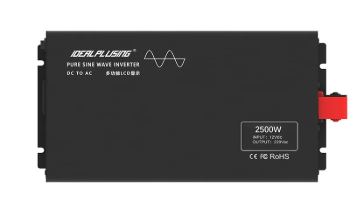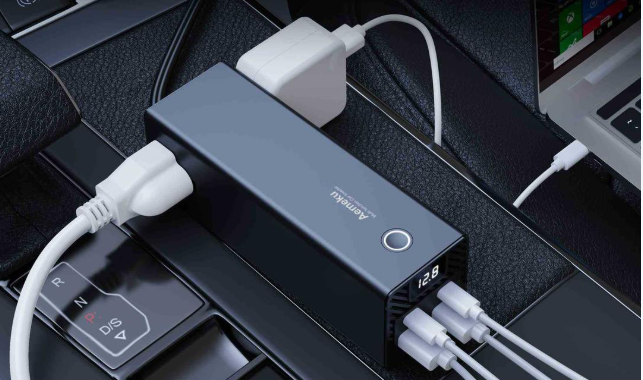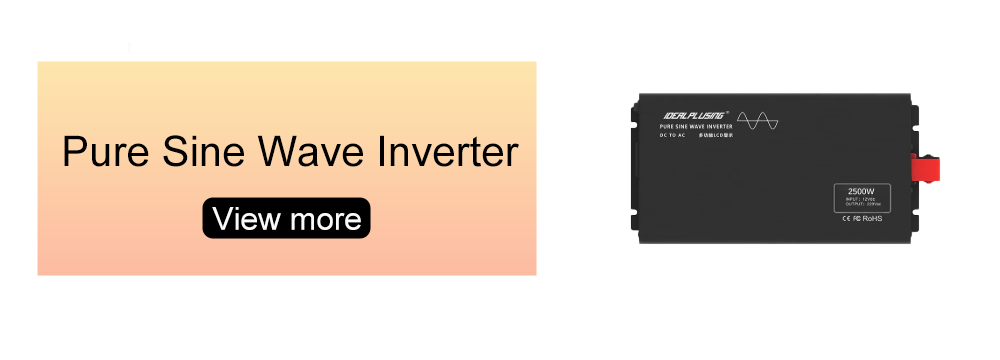As a key device in the field of electric energy conversion, inverters play an important role in modern society with their excellent output characteristics. This inverter can generate high-quality sine wave AC power that is identical to the power grid, providing reliable power guarantee for various precision equipment and critical systems. In today's article, we will introduce some of the main application areas of inverters to help you better understand this product and its importance.

Inverters in Solar Power Systems
In the field of renewable energy, inverters have become the core components of solar power generation systems. Both grid connected and off grid photovoltaic systems rely on it to complete the conversion of direct current to alternating current. In grid connected systems, inverters ensure that electrical energy is injected into the grid in a perfect sine wave form; In off grid systems, stable and reliable AC power is provided for independent power supply systems such as residential buildings and communication base stations in remote areas. These systems not only require inverters to have high conversion efficiency, but also require them to have intelligent grid adaptation capabilities.
Application of Inverters in the Transportation Industry
Pure sine wave inverters are widely used in the transportation industry. Modern RVs and yachts rely on it to convert DC electricity from batteries into AC electricity, providing power for various household appliances. In the charging infrastructure of electric vehicles, high-power pure sine wave inverters play a crucial role in AC/DC conversion. These application scenarios impose strict requirements on the reliability, safety, and efficiency of inverters. When it comes to the application of inverters in the transportation field, the most representative one is the new energy vehicle (EV). The power battery of new energy vehicles stores direct current, while the driving motor requires alternating current to operate. This requires an on-board inverter (also known as a "motor controller") to complete energy conversion: it can adjust the frequency and power of the output alternating current in real time according to the driver's operation (such as stepping on the accelerator or brake), control the motor speed, and achieve functions such as vehicle acceleration and deceleration.

Penetration of Inverters in Industrial Production Scenarios
In the industrial field, the application of inverters has penetrated into all aspects of production, among which the most typical is the role of industrial grade inverters in motor control and new energy power supply. For example, in manufacturing factories, equipment such as conveyor belts, machine tools, and fans mostly rely on motor drives, while inverters can accurately control motor speed by adjusting the frequency and voltage of the output AC power, reducing energy waste and equipment losses, and improving production efficiency. At the same time, the backup power system of large factories also relies on inverters. Many factories are equipped with diesel generators or energy storage batteries as emergency power sources. The DC power output from the generators and batteries needs to be converted into 380V AC power required by industrial equipment through inverters to ensure uninterrupted production lines during power outages. In addition, in scenarios such as data centers that require extremely high power supply stability, the combination of inverters and UPS (uninterruptible power supply) can achieve "zero interruption" power supply switching, avoiding data loss or system paralysis caused by power outages.
Role of Pure Sine Wave Inverters in Emergency Power Supply Systems
In emergency power supply systems, pure sine wave inverters are used in conjunction with generator sets or battery packs. In emergency situations such as power grid failures or natural disasters, it provides backup power for important loads, ensuring the continuous operation of key equipment such as lighting, communication, medical emergency, etc. These systems typically require inverters to have fast response and high reliability.
Special Application Areas and Technological Evolution of Pure Sine Wave Inverters
Special application areas include aerospace, military equipment, scientific research experiments, and other situations that have extreme requirements for power quality. These applications often require customized inverter solutions to meet specific performance indicators and environmental requirements. With the development of technology, pure sine wave inverters are evolving towards higher efficiency, higher power density, and greater intelligence.
From households to industries, from transportation to off grid scenarios, the application of inverters has long surpassed "simple energy conversion" and become a key "bridge" connecting different forms of energy and electricity demand. With the rapid development of the new energy industry and the promotion of the "dual carbon" goal, inverters will not only be upgraded towards higher efficiency, energy conservation, and intelligence, but will also play an important role in more emerging scenarios such as hydrogen power generation, energy storage power stations, and virtual power plants. In the future, with continuous technological breakthroughs, inverters will continue to bring more convenience to our lives, production, and travel, promoting the development of energy systems towards cleaner and more sustainable directions.








